OPTION CHOICES
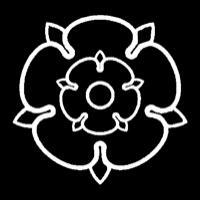









At this stage in Year 9, you need to make Option Choices regarding the subjects you wish to study for GCSE.
At LGGS we make a number of subjects compulsory for all pupils so you can continue to study a broad, balanced curriculum. However, we also recognise that by Year 9 you may have certain subject strengths or interests.
If you have clear ideas on a career this may also influence your choice of GCSEs and it is also worth remembering that if you wish to study a subject at A-level, for most subjects, it is better to have studied them at GCSE first.

You will receive plenty of advice as you make your Option Choices and I hope that you find this booklet useful.
Mrs J S CahalinWe want all of our students to be as successful as they can be in their GCSE courses and therefore we organise a highly successful mentoring programme both in Year 10 and Year 11.
From our regular Assessments and Expected Grades, we monitor who is not performing as well as they could and allocate these girls to a senior member of staff for regular meetings.
Action plans are put in place and liaison with parents is a crucial part of this process.
It is important to remember that LGGS Mentoring should be seen as an opportunity to guide you back on track to achieve the best possible GCSE results.




My role is to oversee your academic progress during Year 10 and 11 and this includes the organisation of a Mentoring Scheme if required.
I also oversee Pastoral issues in KS4 and if you wish to discuss issues in confidence. I am supported by Mrs Alderson–Beeching KS3/KS4 Pastoral Assistant, Miss Jolleys, learning mentor and a host of other professionals with Health, Well-being and Counselling backgrounds. The Key Stage 4 office is located adjacent to Room 8. Should parents wish to contact me, I can be reached by the main School’s telephone or by email: d.green@lggs.lancs.sch.uk
Key Stage 4 is a very important stage of your education and you will be expected to take more responsibility for your own work than at Key Stage 3. Teachers are here to support you and will offer help when you ask for it.
LGGS also runs a number of subject clinics in Years 10 and 11 - see details in the Academic Support Booklet. These clinics operate outside normal school hours, once or twice a week, and may be used to assist you with any work problems.

Teachers will also talk to you in lessons about their subjects at GCSE. Options booklet distributed electronically and available on the school website. Use this to find out more about each subject at GCSE and discuss possible options with your parents / guardian. Alternative options booklet published electronically. This is produced by students for students and gives you information about each subject from those currently studying that GCSE.
Mrs Hutchinson will contact you if there are any timetable clashes or if a subject you were interested in does not have enough interest to be viable. Any further changes to choices at this stage are only possible if combinations fit the timetable and group sizes allow. Summer term Option Choices will be confirmed for all students - ready for September
Course Overview
This course nurtures and develops written creativity, analytical skill and the exciting exploration of challenging texts. In terms of reading, pupils are offered a rich array of non-fiction and literary non-fiction texts from the 19th, 20th and 21st centuries, which will be covered alongside the play, novel and poetry taught in the English Literature course, to allow for a rich and synoptic approach.
As for writing, students are also encouraged to hone their narrative, descriptive and opinionated writing skills over the two years. Spoken Language skills are embedded within the learning on this course, with students completing regular Speaking and Listening tasks to complement their learning and exam preparation.
PAPER 1: Explorations in Creative Reading and Writing (50%): 1 hour 45 minutes
Section A: Students will answer four questions in response to an extract from an unseen modern literature fiction text, such as a novel.
Section B: Candidates will write an extended creative piece with the purpose of describing or narrating a scene or situation. 60% of the mark will be accredited to content whilst 40% will focus on the quality of spelling, punctuation and grammar.
PAPER 2: Writers’ Viewpoints and Perspectives (50%): 1 hour 45 minutes
Section A: Students will answer four questions in response to two unseen sources: one non-fiction text and one literary non-fiction text, such as a modern newspaper article and a 19th century letter.
Section B: Candidates will write an extended non-fiction piece with the purpose of explaining a viewpoint or opinion, such as a magazine article.

60% of the mark will be accredited to content whilst 40% will focus on the quality of spelling, punctuation and grammar.
SPOKEN LANGUAGE (separate endorsement): Teacher assessed tasks throughout the course will focus on the skills of: presenting, the use of Standard English and responding to questions and feedback. These will be accredited separately.
The linear approach to assessment leads to two examinations at the end of the two year course which will allow students to showcase the skills, knowledge and understanding they have developed through this enriching course.
Both examinations will be sat at the end of the two year course.
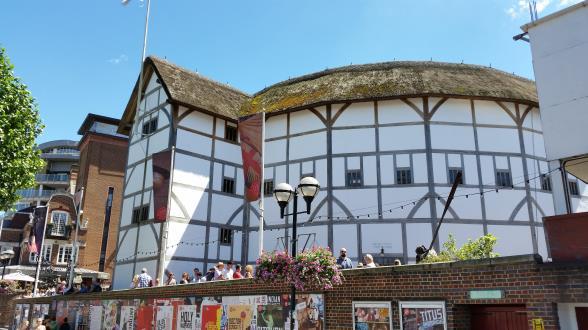
The GCSE English Literature course is designed to both inspire and challenge every student. While an exciting and life enhancing subject in its own right this course has close links to the study of English Language. The teaching of English Literature alongside English Language allows for the development of students’ personal interpretation and responses across a range of texts while common assessment objectives guide their exam preparation. The course takes a

skills-based approach to the study of English Literature that is consistent across the genres. Students will experience the indepth study of a complete play by Shakespeare and a Nineteenth Century novel alongside modern drama and a selection of add power and conflict poetry. As well as giving students a comprehensive grounding in a wide variety of literature this approach also offers an excellent preparation for A-level English Literature for those students who choose to pursue this subject.
PAPER 1
Shakespeare and the Nineteenth Century Novel (40%) 1 hour 45 minutes
Section A
Shakespeare: Students will answer one question on their play of choice. They will be required to write in detail about an extract from the play and then write about the play as a whole.
Section B
The Nineteenth century novel: Students will answer one question from the set text. They will be required to write in
detail about an extract from the novel and then to write about the novel as a whole.
PAPER 2
Modern Texts and Poetry (60%) 2 hours 15 minutes.
Section A
Modern texts: Students will answer one essay question from a choice of two on their studied modern prose or drama text.
Section B
Poetry: Students will answer one comparative question on one named poem printed on the paper and one other poem from their chosen anthology cluster.
Section C: Unseen poetry: Students will answer one question on one unseen poem and one question comparing this poem.
Our students have had an opportunity in the past to join the English and Media Society, the History Society and also contribute to the English Society’s newsletter.
Mr

AQA
CAREERS
Digital copywriter
Editorial assistant
English as a foreign language teacher
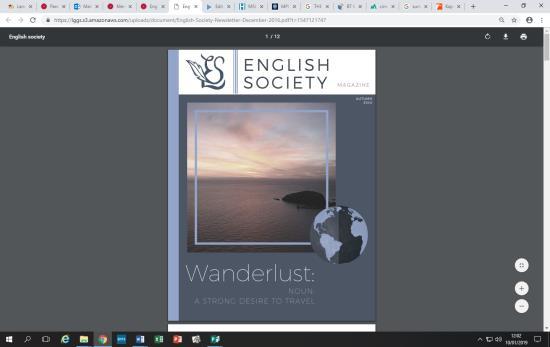
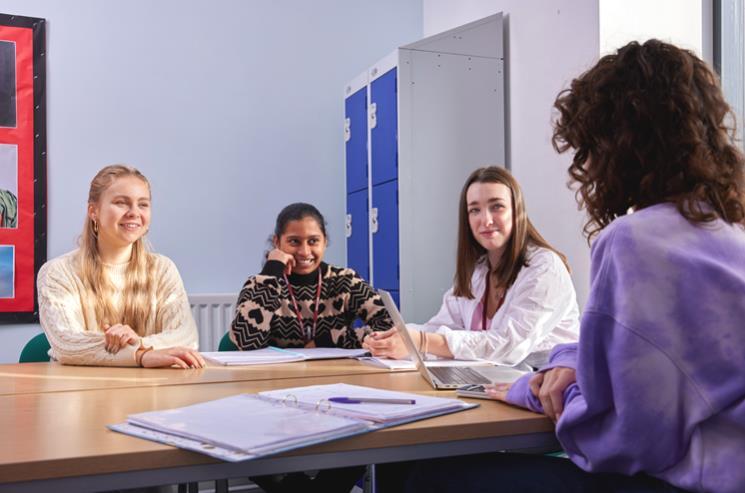
Lexicographer
Magazine journalist
Newspaper journalist
Publishing copy-editor / proof-reader
Web content manager
Writer
Academic librarian Advertising account executive
Advertising copywriter
Arts administrator Information officer
Marketing executive
PPC specialist
Primary school teacher
Public relations officer

Records manager
Secondary school teacher
Social media manager
The 19th century novel is Jekyll and Hyde
The modern prose or drama text is An Inspector Calls

activities. This will help you see something of the range of careers open to you should you wish to follow science beyond KS4.
Our aim is to stimulate an enjoyment of and interest in the study of organisms and the importance of conservation. We provide a curriculum which allows students to develop and hone practical skills so they can handle and manipulate scientific apparatus with confidence and foster recognition of the value and use of biology in everyday life. It is also our aim to develop an understanding of how science works and its application in the workplace and society and through this understanding,
in Biology, Chemistry and Physics which work towards GCSE qualifications in each subject.



The main difference you will notice is that each subject is taught over 2 hours each week. This allows more time for you to work with your teacher to achieve a better understanding of each topic.
You will continue to be taught in five groups and by teachers specialising in the particular subject.
Practical work will remain a strong component of the courses
develop your understanding and your investigative skills. Each subject will be examined by 2 written papers at the end of Year 11. You will be well prepared should you wish to take A courses in any or all of the sciences or as a foundation for understanding the natural world and making the most of our increasingly technological society. During KS4, you will have the opportunity to listen to a number of professional scientists, engineers and people from different branches of medicine as well as take part in extra
achieve outstanding examination results to allow our students to gain entry to the top Universities.
Chemistry is a very vibrant subject. It has been defined as the branch of natural science that deals with the composition of substances, their properties and reactions.
Chemistry evolved from the medieval practice of alchemy and is often referred to as the central science, as an understanding of Chemistry is necessary for a range of other scientific disciplines from Oceanography to Geology. A good grounding in Chemistry will also give you an insight to how real-world phenomena work. The life processes of all organisms involve chemical changes and chemists play a key role in the fields of biochemistry, genetic engineering, nanotechnology, manufacturing, agriculture, drug development, transportation and communication to name but a few. A good chemistry student will be numerate, practical and analytical, with good problem solving, presentation and communication skills.


In Physics we want to encourage curiosity and a fascination with the physical world, from the tiniest sub -atomic particles to galaxies and black holes. We want you to ask questions, and to develop the skills, understanding and knowledge to set about answering them. You will learn about Space, Radioactivity, Motion, Magnetism and much more besides. Physics will help you make sense of the Universe around you. It will also help you to become a logical, creative thinker able to solve problems, explain your ideas and investigate the physical world.
aching. But when the result poured out of the charts, you just forget all that. You realize instantly how significant this is - what it is you’ve really landed on - and it’s great!’ Jocelyn Bell Burnell (About her discovery of the first pulsar radio signals). Jocelyn was President of the Royal Astronomical Society from 2002 to 2004.
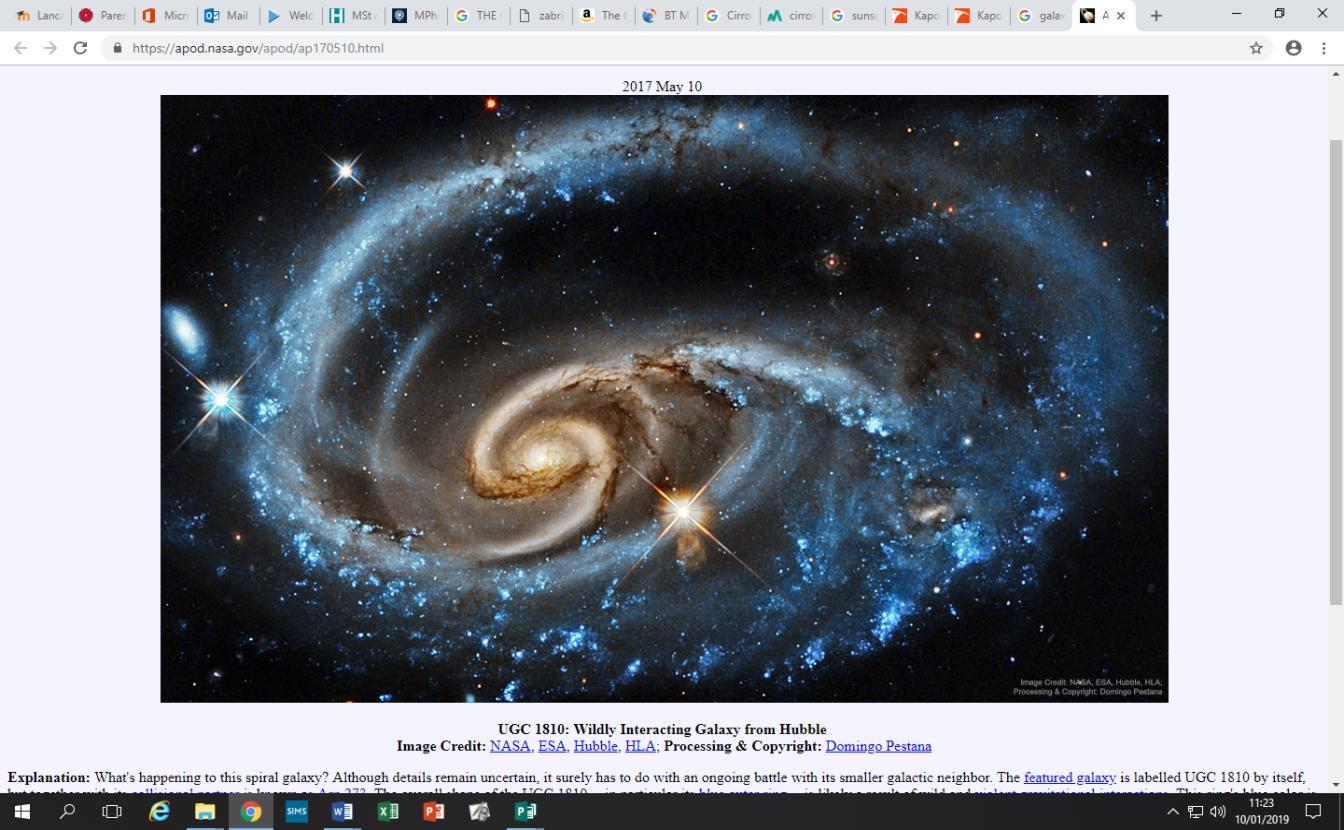
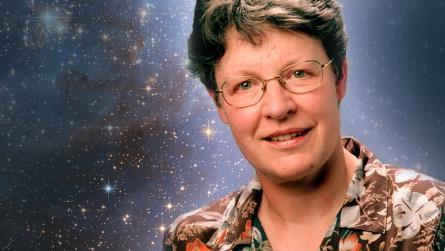
There are six assessment areas namely
1) Number


2) Algebra
3) Ratio, Proportion and Rates of Change
4) Geometry and Measures 5) Statistics
6) Probability
The structure of Mathematics at GCSE has two different tiers of entry. All girls take the higher tier papers. There is no controlled assessment in GCSE
You will also meet some entirely new concepts in number, geometry and statistics, for example. Collectively, the topics covered provide a thorough grounding for those pupils who will wish to continue their mathematical studies to A-level.
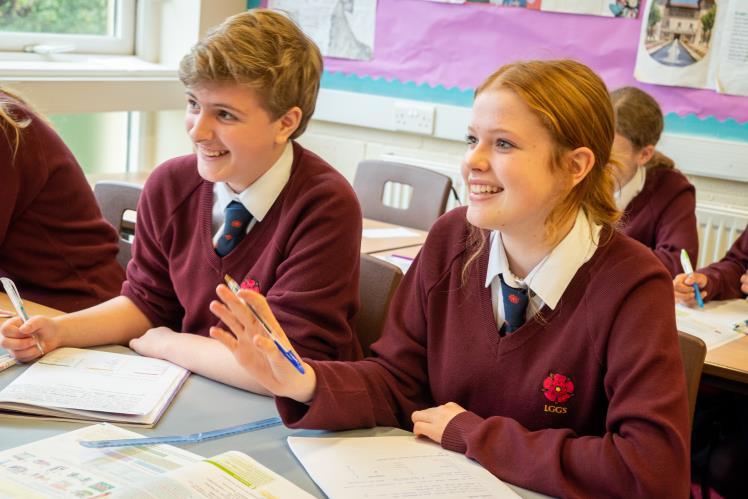
Over the past few years, there have been a variety of opportunities open to KS4 girls in Years 10 and 11.
These have included mentoring girls in the lower school in the subject, attending ‘popularising’ lectures in venues such as Salford and Manchester and entering a
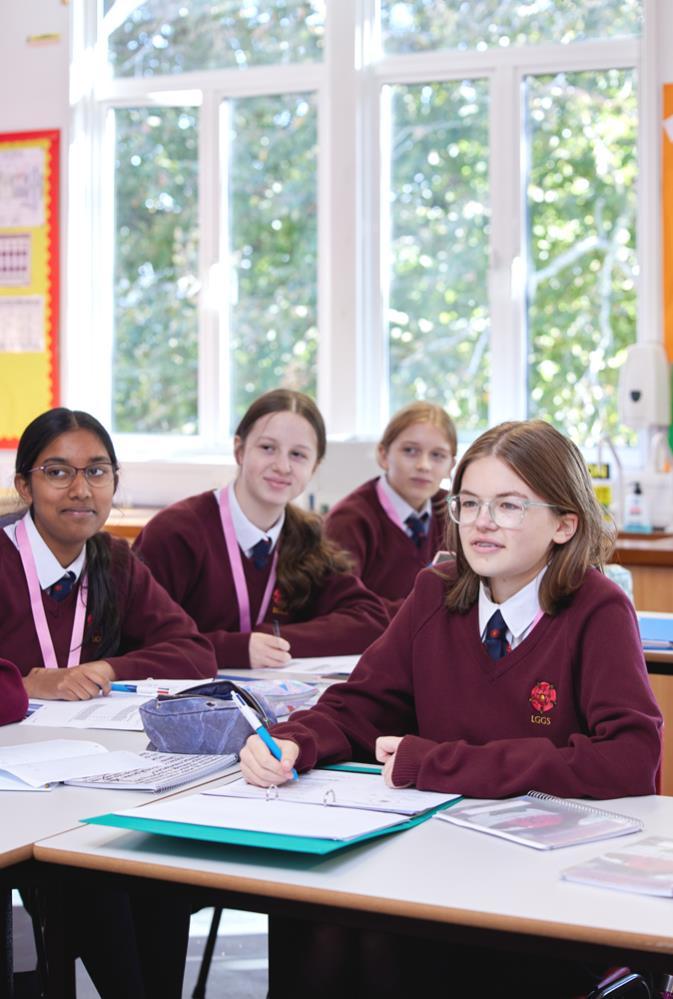
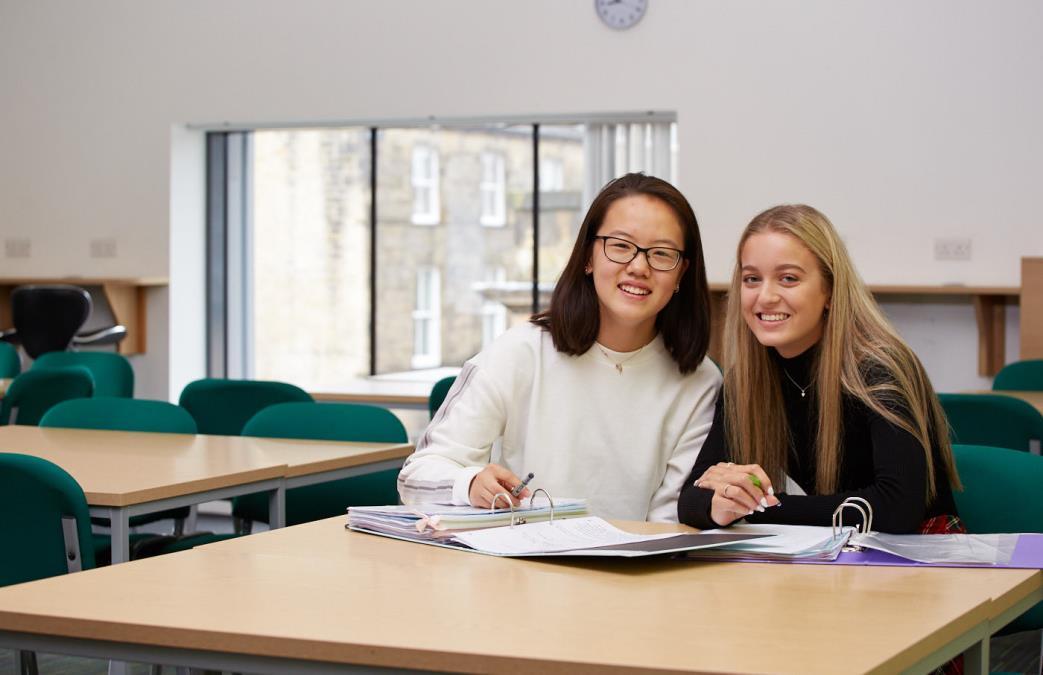


• Diversity and protected characteristics
• Being a citizen in the UK: democracy and identity

• Relationships
• Healthy lifestyles
•Finance
Core Religious Studies is taught to all pupils in KS4, regardless of their GCSE options choice, thus allowing us to meet our KS4 legal obligations. In Year 10, this non-examined course will give students an introduction to ethical theories, ethical issues surrounding the topics of Abortion and HIV and an opportunity to understand and practice Mindfulness. In Year 11, the focus is on the role of the family.
allows them to build up a range of potential careers options based on subjects studied, hobbies and interests. In addition to this all Year 11 students have a mock interview with a local employer on our mock interviews day and a one to one careers interview with our independent careers advisor

Health Education
In Year 10 Health education is taught during days dedicated to particular areas of focus. Common topics covered are contraception and healthy relationships, peer pressure, consent, online safety, drugs and alcohol education and input on current issues affecting young people.
The management of money, paying bills and understanding loans, credit and debit as well as the implications of getting into debt.
Along with English, it is spoken on all five continents, and is the second most frequently taught language in the world. It is also the second official language of key international bodies such as the UN, NATO and the International Olympic Committee. In a recent listing of international jobs, the overwhelming majority preferred or required French. To help you accelerate your progress in the language you can also take part in the school exchange!
LGGS has a well-established exchange with a lycée near Lyon. You stay with a French family and go to classes in the French school, as well as learn more about the history, geography and culture of the area through organised excursions.
GERMAN

German is the most widely spoken language in the EU and German holidaymakers are major contributors to European and global tourism.
After China, Germany is the second biggest exporter worldwide. International
companies, therefore, see German - speaking employees as a great asset. Year 10 also have the opportunity to experience German culture first hand by taking part in our exchange
in the business world, and is also a beautiful language to listen to and to speak!
LGGS also has a long-running exchange programme with a school near Valencia, to enable you to experience Spanish life and culture first hand. You stay with a Spanish family, and have the opportunity to visit beautiful towns, castles, beaches, an orange factory or maybe an olive oil museum, as well as attend lessons with your partner.
language speakers as English and is growing? In fact, it is predicted that there will be 530,000,000 Spanish speakers by 2050. Spanish is spoken all over the world, and the top five Spanish-speaking nations are Mexico (100 million), Colombia (44.5 million), Spain (44 million), Argentina (38.5 million) and the USA (38 million). Spanish is growing in importance by the day
Language graduates are increasingly sought after and a foreign language, whether spoken fluently or conversationally, can give access to a much wider range of jobs in the UK and overseas. Using your languages at work doesn’t mean being just a teacher, translator or interpreter (although these jobs make for an extremely interesting career). The Independent recently featured an article on how languages can lead to a dream job from tennis tournaments to the wine industry! You can apply language skills in an enormous range of careers because communication is an employer’s number one requirement.
Dealing with another culture enables people to gain a more profound understanding of their own culture. Creativity is increased with the study of foreign languages. Graduates often cite foreign language courses as some of the most valuable courses in college because of the communication skills developed in the process.
It's really important that you learn to speak and understand other people no matter where they are from and is beneficial when you travel around the world. It’s the perfect way to meet new people and discover new cultures and can really make you stand out from the crowd. Learning a foreign language can also help you understand your own language and make it easier to learn others. You develop four key skills; listening, reading, speaking and writing. It’s an impressive achievement to speak a foreign language and you'll have better options for your future!
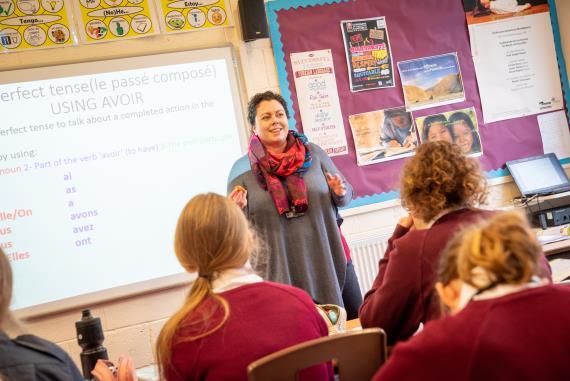
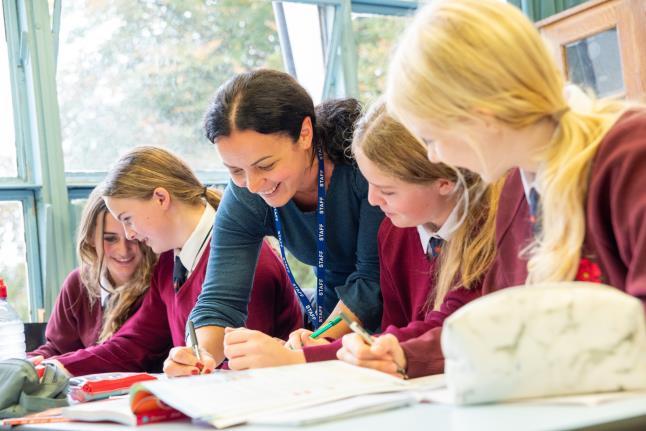
• Speak spontaneously and make yourself understood in a foreign country
• Speak and write in detail about a wide range of contemporary topics

• Gain a greater understanding of the cultures of the countries where the language you are studying is spoken
• Translate from and into the target language

• Understand native speakers
• Be creative and imaginative in a foreign language!
Languages lessons are interactive and sociable and offer great scope for creativity in another language. They also provide opportunities for more independent and structured learning. Content is varied and can be lively, from translating authentic texts to learning a wide range of grammatical structures.
There is also the option to travel, through participating in one of the School’s exchange programmes.
Serena Williams: French Leonardo de Caprio: German

Gwyneth Paltrow: Spanish
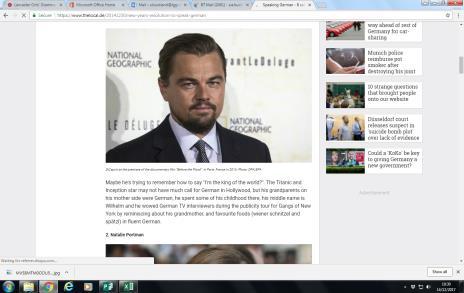
The subject content of the course focuses on developing a detailed understanding of the physical and human landscapes across the globe.
In the physical section, we do this by looking at the characteristics of the challenge of natural hazards, physical landscapes in the UK and the Living World.
The human course includes urban issues, economic geography and resource management.
Format of Assessment
The scheme of assessment is linear in nature and consists of three components:
Unit 1: Living with the physical environment (35%)
Unit 2: Challenges in the human environment (35%)
Unit 3: Geographical applications (30%)
All Units are taken at the end of the course in Year 11.
Fieldtrips are an integral element of what we are about in the department and always have been. The number and breadth of trips offered is the largest in school and at all points supports


‘
‘

The harshness of the landscape was awe inspiring and the ways in which the Icelanders had adapted to this was impressive.’
To see how a nation had kept its clear identity through language, literature and by interacting with the landscapes - was very impressive.’ Jess
the classroom learning whether that be within the human or physical disciplines.
At GCSE we have to provide experience of fieldwork as part of
the obligatory delivery of the course, and this is then signed off as part of the course experience. This is currently done on separate days, each focused on a specific
Geography teaches you all about the world in which we live. It is the study of the world's societies, and gives you insight into economies and cultures far flung from your own.
Geography provides 'transferable skills' including independent working, meeting deadlines and teamwork, as well as how to assess data and analytical and research skills gained from your Geography course are attractive to a range of employers .
Geography is consistently amongst the top 10 of all subjects studied at university in terms of developing applicable transferable skills.
element of the course. It is usual to have one day in Year 10 and another in Year 11. Often in the past, a piece of coursework would stem from this fieldwork experience, now the course has a Skills and Applied Geography paper instead and so there is no individual coursework write up.


where in the twilight we saw Icebergs and seals intermingling as the northern sun dipped below the horizon. We passed the spectacular Geysir and Gullfoss to the ‘must visit’ attraction of the Blue Lagoon and then travelled on to Reykjavik for the final night. Words can hardly do the landscape justice and it should be a definite on everyone’s
The Geography Department at LGGS was re-awarded the Secondary Geography Quality Mark (SGQM), for the second time, following the first Award in 2014.
LGGS was one of approximately 45 centres nationally and internationally to gain the Award which ran from 2017 - 2020.
The SGQM is a prestigious Award which recognises quality and progress in Geography leadership, curriculum development and learning and teaching in schools.
CONTACT teacher Mr Haslam EXAM BOARD AQAThis is a GCSE course with exciting opportunities to study a wide range of different historical periods, topics and geographic areas, with a key focus on developing both breadth and depth of historical knowledge and understanding, as well as a wide range of higher order historical skills.
Unit 1 is focused on Understanding the Modern World. Section A of this unit is a period study focused on the USA: America, 1920-1973: Opportunity & Inequality. This topic will cover amongst other aspects; the Jazz Age, ‘Boom & Bust’, Ku Klux Klan, Prohibition & organised crime, The Great Depression, The New Deal, Popular Culture, Rock and Roll, Civil Rights, Feminism and the Social Revolution of the 1960’s.
Section B is a wider world depth study examining: Conflict & Tension, 1918-1939. This unit will
focus on international relations in the aftermath of World War I: the Treaty of Versailles, the League of Nations - its formation, organisation, successes and failures - Appeasement, Hitler’s foreign policy and the origins of World War II.
Unit 2 is focused on British History and Shaping the Nation. Section A is a thematic study which traces developments across a broad period of history; Britain: Migration, empires and the people c.790 to present day. Topics studied will be based around historical change and continuity in this period and based on themes of: war, religion, government, economic resources, science technology, ideas such as imperialism, Social Darwinism, ‘civilisation and the role of the individual.
Section B is a British depth study including aspects of the historic environment during: Norman England, 1066-c.1100
Content covered will involve the major events of the conquest, occupation and control of England by the Normans in this period from the Battle of Hastings and including castle building, Harrying of the North, Domesday Book, feudal system and the Norman Church.
• Two written examinations each of 2 hours
• Each paper is worth 84 marks, including 4 marks for spelling, punctuation and grammar
• Each paper is worth 50% of the final mark
As part of our Unit 2 Section B study of Norman England c.1066 - 1100 we undertake a study of a historic environment. In recent years this has involved a day visit to historical sites such as Durham Cathedral and York. In 2023 Year 11 will be visiting paying a visit to Chester to study the Norman impact on the city.
Transferable skills: Studying History provides skills of analysis and evaluation; the ability to analyse and then prioritise information is vital to effective decision making.

In order to make sense of current affairs it is important to study the past, as everything which is happening around us has been influenced by, and is a direct result of, that which proceeded it. History can be easily combined with a number of other subjects.
History is a subject dominated by reading, students will develop self-sufficiency.
Cultural awareness: By looking at the history of different cultures, a History student can build up a better understanding of why certain peoples act the way they do.
Learn from the past: If you are to look at human history there are particular patterns which tend to repeat themselves.




More than ever before, the world we live in is both multi-faith and global. Religion is a major source of inspiration, meaning and controversy in our world, informing politics, law, history, economics, science, art and literature. Understanding people’s religious convictions will help you to understand how they think about controversial and philosophical issues related to: international conflict resolution, peace and the maintenance of justice, good and evil, life and death, the existence of God, religious experience, human rights, prejudice and discrimination, living in community and expressions of cultural identity and spiritual awareness. It is essential that we cultivate our ability to understand and interpret other people’s religious traditions and beliefs if we hope to understand the world we live in. The study of religion is an academic discipline which helps you to learn how to think critically, listen empathetically, speak thoughtfully, and write clearly - all skills that will be of great use no matter what you go on to do in life. In this way studying religion invites us all to think in a more interdisciplinary and integral way about the world and our place in it.

1 Muslim Beliefs
Six beliefs / 5 Roots / Nature of Allah / Risalah (Prophets) / Holy books / Malaikah (Angels) / AlQadr (pre-destination) / Akhirah (life after death)
2 Crime and Punishment Justice / Crime / Good, evil and suffering / Punishment / Aims of punishment / Forgiveness / Treatment of Criminals / The death penalty

3 Living the Muslim Life Ten Obligatory Acts / Shahadah (declaration of faith) / Salah (prayer) / Sawm (fasting) / Zakah and Khums (purification of wealth) / Hajj (pilgrimage) / Jihad (striving) / Celebrations and Commemorations
4 Peace and Conflict Peace / Peacemaking / Conflict / Pacifism / Just War Theory / Holy War / Weapons of mass destruction / Issues surrounding conflict


‘

I think the most memorable place was the war memorial because it really put into perspective how awful the war really was and makes you appreciate what we have.’
Ciara
‘
My most memorable part of the visit was visiting the concentration camp and seeing the children’s monument as it really illustrated the extremity of the Nazi regime.’
Meg

During this course, students need to draw upon skills acquired during Key Stage 3. They will enjoy a more independent approach to work and experiment with a variety of materials using a range of art, craft and design processes in two and/or threedimensions, with both traditional and new technologies.
Although it is not necessary to be highly skilled at drawing to take Art, enthusiasm and commitment is needed to do well. A new emphasis on drawing has been placed in the new specification.
The Art and Design GCSE course also helps students to explore and extend their key skills in
communication and problem solving. Integral to the creative making processes in Art, students will need to investigate art and artists from the past and from recent times, including European and non-European examples. During the first year, the work relates to two prescribed themes and responses to these themes should demonstrate an understanding of different styles and traditions. In the second year students have the freedom to allow their interests, curiosity, and aptitudes to dictate the focus of their studies. Some of the highlights of the course are visits to art galleries and design centres.
This final assessment is a combination of a portfolio of work (60%) and the externally set task (40%). In the examination at the end of the course there will be ten - hours to complete a focused study. The coursework consists of two major units of work completed during Years 10 and 11 including all pieces of work completed
The internet has created an explosion of opportunity for digital designers and multimedia artists, animators and illustrators, especially those who are computer savvy. Art continues to be a desirable option for students wishing to pursue ‘traditional’ creative careers, such as architecture, interior design or fine art related professions.

Those who make fine art, sculptures, photographs, fashion garments and other hand-crafted products are able to market and sell these directly to the public, without going through a third-party such as a gallery.
Art enhances fine motor skills, hand - eye coordination, problem solving skills, lateral thinking, complex analysis and critical thinking skills. Those who can arrange, present and display material in a way that is aesthetically pleasing have an advantage in the workplace whilst coursework teaches you self-discipline.
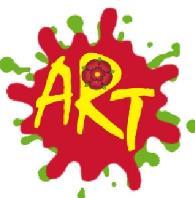
“


during this time. The main skills acquired during the two year
course are those of drawing, observing, analysing, communicating, reviewing, experimenting, designing, making and evaluating. Students will be expected to show appropriate use of colour, line, tone, texture, shape and form with creative experimentation.
Support open to all GCSE students:
2 lunchtimes per week
Trips to Liverpool
Visiting Artists
Regular Art Competitions
My advice to women in the arts today is that it is a changed world. But it really is still a case of pushing and pushing and making opportunities and never being complacent.”


Frances Morris, Director of Tate Modern

The Drama course combines practical work with theoretical study in order to give students the opportunity to develop their ability in and understanding of practical drama skills, as well as enhance their appreciation of plays, playwrights and the theatre.
The course comprises:
Understanding Drama 40% Written exam. Students will write about a set play and live theatre seen.
Devising Drama 40% Students will create their own work and perform for an audience. Their contribution could be as an actor or designer. This will be teacher examined.
Drama encourages students to improve their skills in creativity, concentration, confidence, sensitivity, teamwork, problem-solving and self-awareness. It also provides opportunities for students to develop leadership skills and create performances. Above all,
it provides a lasting enjoyment of the theatre and, for some, an insight into a possible future career.
On this course, students will have the opportunity to go on theatre visits, back - stage tours, work with visiting actors and participate in workshops.
• Strong working links with the Dukes Theatre providing work experience, youth theatre and performance opportunities

• Regular theatre trips to a range of venues across the north west
• Support with auditions and successful applications for the National Youth Theatre
• Backstage tours and post-show discussions with professional theatre-makers
20%
Students will perform two extracts of scripted theatre for an external examiner. Their contribution could be as an actor or designer.
• In-house workshops from visiting theatre companies and performers/directors/designers
Drama helps young people to understand how to appraise situations, think outside the box and be more confident going into unfamiliar situations. Confidence gained from learning performing arts skills applies to school, career, and life. Understanding characters, roles and the subtext of plays encourages students to develop compassion, understanding of human behaviour and tolerance for others. Theatre is a collaboration and requires all those taking part to engage in discussions, take advice and listen to feedback. Importantly it helps to develop listening, communication and observation skills. Both developing and performing drama work will develop the ability and skills to be able to focus the mind, the body, and the voice. Drama may bring with it elements of play, it improves motivation and may help to reduce stress, allowing students to express a range of emotions through role play in a safe and creative environment.






The Music GCSE course is designed to increase your skill, knowledge and enjoyment of music in all its forms. The twoyear course is divided into 3 units, which are taught simultaneously.
UNIT 1 - Performing 30% of the qualification
Performing forms a major part of the course and as well as being assessed in its own right, it underpins many of the skills covered in Units 2 and 3. You will record a solo or ensemble piece (in any style/genre) every half term and select your strongest from each category (lasting a combined minimum of 4 min.) to be sent off for assessment. To gain the highest marks in this unit you need to be able to perform music equivalent to at least Grade 4-5 standard (though no formal qualifications are necessary to be accepted on the course). It is also an option to study this unit
through Music Technology (i.e. creating a studio recording) or by directing/rehearsing an ensemble or choir.
UNIT 2 - Composing 30% of the qualification
You are to compose TWO pieces of music over the two years, lasting a minimum of 3 MINUTES combined duration. The first composing brief will be set by the exam board and the second is a free choice made by the student. Compositions can be written in a variety of styles and incorporate Music Technology if the student wishes.
They may be completed in a traditional score format or submitted as a recording with a written commentary.
UNIT 3 - Appraising 40% of the qualification
In this unit students develop their listening and appraising skills through the study of music across
Music is an incredibly diverse course, encompassing a variety of practical and academic approaches to its study, its varied nature enables students to develop highly-desirable skills in areas such as selfmanagement, teamwork, problem-solving, and communication; all of which makes them an attractive prospective for potential employers.
Music opens doors to a wide range of careers both within and outside the arts and the social aspect of the course allows you to build on these social skills alongside the technical aspects.
From critical thinking to administration, those who study Music gain a wide range of skills - the skills learnt can be applied to many different professions including performing, teaching, composing, working with film, TV or radio.

a variety of styles and genres. The content of the work is grouped into FOUR Areas of Study; each one comprising of TWO set works. The Areas of Study are:
AOS 1: Instrumental Music 1700 - 1820
AOS 2: Vocal Music
AOS 3: Music for Stage and Screen
AOS 4: Fusions
The unit is assessed through an exam at the end of Year 11 which is in two sections:
Section A - Areas of study: dictation, and unfamiliar pieces

Section B - Extended response comparison between a set work and one unfamiliar piece.
Although prior knowledge of musical theory is highly advisable, we will spend the first term recapping on all the basics of musical theory and composing skills before starting the assessed work. Compositions can also be written in non-standard notations - guitar tab, drum notation, or created using computer programmes such as Sibelius and Garageband. Experiencing live music is an essential part of the course so there will be opportunities to take part in trips to concerts and shows to venues such as the

Bridgewater Hall and London’s West End. Students taking GCSE Music are expected to join at least one of the Senior Ensembles at LGGS. The Joint Schools Musical with LRGS is open to students in Years 10 and above and the following is a list of some of the musical opportunities open to students in Years 10 and above: Senior Choir, Joint Schools’ Orchestra, Concert Band, Jazz Band, String Group and Vocal Group.
The Music Department also offers:
• Student led society, trips and visits, online resources

• A wealth of music groups including Orchestra, Choirs, Jazz Band, Concert Band and the Joint Schools’ Musical

• Music Council
• Regular visits to concerts
• London West End Trip
• Choir Exchange to Wernigerode, Germany
• Music Tour to Europe
• Annual Music Festival
• Annual Performing Arts Festival
Performing: In addition to solo performance careers, there are performance opportunities in chamber music, Music Journalist Folk Rock and Pop Musician Freelance Concert and Studio Opportunities. Composing Teaching Music Arts & Administration Music Technology: i.e. Sound Engineering Music Production Sound Design Music Therapy Music Promotion Music Agent
The modern world depends on technology for everything and a GCSE in Computer Science will teach you all you need to know to create the next generation of technology and beyond.


Computer Science would suit you if you like to solve problems, enjoy mathematics at school and want to do something that involves technology and critical thinking, with a combination of practical and theoretical work.
GCSE Computer Science is a course that has real relevance in our modern world. The course will give you an in-depth understanding of how computer technology works and a look at what goes on “behind the scenes”.
• Systems Architecture
• Memory
• Storage
• Wired and wireless networks
• Network topologies
• System security
• System software
• Ethical, legal, cultural and environmental concerns

• Data representation
We learn Python and develop robust and complex programs. The knowledge and skills learned from studying Computer Science will prepare you for a variety of
Indian born Ruchi Sanghvi was just 23 years old when she became the first female engineer at Facebook. She watched the company grow from a small up into the world’s biggest
Ruchi was instrumental in the development of Facebook’s news feed, which first launched in 2006, radically changing the Facebook experience by putting friends’ online activities at the centre of the site.
She is now Vice- President of Operations at Dropboxa cloud storage system.
Every industry uses computers so naturally Computer Scientists can work in any. Problems in science, engineering, health care, and so many other areas can be solved by computers. It's up to the computer scientist to figure out how, and design the software to apply the solution. Computer scientists theorise, design, develop, and apply the software and hardware for the programmes we use day in day out - sounds pretty important to us. Computer science students have excellent graduate prospects.
Computer Science allows you to be very independent and provides you with the ability to be creative, especially when coding solutions.’
All students will be given the opportunity to undertake a programming task(s), either to a specification or to solve a problem (or problems), during their course of study. Students will draw on some of the content in both components when engaged in Practical Programming. This is not formally assessed.

Paper 1
This paper consists of multiple choice questions, short response questions and extended response questions.
Paper 2
This paper has two sections: Section A and Section B. Students must answer both sections. In Section B, questions assessing students’ ability to write or refine algorithms must be answered using either the OCR Exam Reference Language or the high-level programming language they are familiar with.
Computer Science is a great course if you are interested in finding out how computers work and would like to further develop your problem solving and analytical skills.’ Unit



Content Systems architecture, Memory and storage, computer networks, connections and protocols, Network security, systems software and Ethical, legal cultural and environmental impacts of digital technology.
Exam 1.5 hours (80 Marks)
Algorithms, Programming fundamentals, Producing robust programmes, Boolean logic and Programming languages and Integrated Development Environments
1.5 hours (80 Marks)
This dynamic theoretical and practical course builds on student’s experiences from Key Stage 3. The modern specification is designed to open students’ eyes to the amazing world of sport by delving into a vast range of topics from Anatomy and Physiology to Sports Psychology and Technology: alongside the chance to perform at a competitive level.

The combination of the physical performance and academic challenge provides an exciting opportunity to learn in a variety of challenging and engaging learning environments. The diverse nature of this subject means that it complements many subjects and is a great compliment to the science subjects at GCSE, although it also combines with a wide range of other subjects too. The new and contemporary topics will help students of all abilities to
develop a well-rounded skill set and prepare them for progression to further studies.
The qualification aims to:
• equip students with essential life-skills and knowledge required for further education and the world of work
• offer students the opportunity to experience and develop an interest in a variety of different sports

• develop an appreciation of social, moral and cultural issues which affect participation and performance in physical activity
• improve the skills necessary to analyse, evaluate and improve performance
• develop an understanding of the factors influencing performance and participation in sport
Year 10 CORE PE Curriculum
You will have four hours per fortnight. Throughout the year you will participate in a range of indoor and outdoor games, healthrelated exercise, tennis, athletics and rounders. There will be opportunities for you to experience performing, officiating, coaching and leading in each
Physical education enables students to become confident, connected, actively involved, lifelong learners. It helps students develop the skills, knowledge, and competencies to live healthy and physically active lives at school and for the rest of their life. Promoting active lifestyles and understanding how this influences their own well-being and that of others. Students challenge themselves to develop their physical and interpersonal skills, sharpen their knowledge of strategy and tactics, and help them to transfer knowledge from one context to another. Physical Education also develops teamwork, leadership, and interpersonal skills and teaches the necessary knowledge and skills for working with and relating to others, and provides the learning opportunities to develop these skills.
It enables the development of leadership and teamwork skills and encourages students to transfer knowledge to other learning areas. It does this for example, by supporting students to work cooperatively in other subjects, or when working with groups in a leadership role in the school setting and in their lives outside of school in sports clubs or community groups.
which is a national qualification accredited by Sports Leaders UK.
You will take part in three hours per fortnight and be given the opportunity to take part in a wide variety of different activities on a weekly basis. Activities include problem solving, backball, dodgeball, fitness suite, lacrosse, handball and many more. The fantastic programme means you will always take part in something you enjoy and never get bored!
At Key Stage 4: There is a still a vast extracurricular timetable available to you including hockey and netball. If competitive sport is not for you then why not make use of the fitness suite and dance studio before school, at lunch time or after school. Some pupils choose to coach or officiate the younger pupils and this is a fantastic way to develop your leadership skills.

Here are some reasons why GCSE PE is for you ...
• You enjoy a range of sporting activities
• You are competent at a range of sporting activities
• You want to improve your own performance in a range of sporting activities
• You want to know more about the benefits of sport and exercise
• You are interested in a sport related career.
The course takes place over two years with five lessons over two weeks and consists of practical and theoretical components in the following format:
Examination (60%)
Two written papers (78 marks) 1 hour 15 minutes
Paper 1: The human body and movement in physical activity and sport
Examination topics: Applied anatomy and physiology Movement analysis Physical training Use of data
Paper 2: Socio-cultural influences and well-being in physical activity and sport.
Examination topics:
• Sports psychology
• Socio-cultural influences
• Health, fitness and well-being
• Use of data
• Practical Controlled Assessment: 40% You will be assessed as a performer in three different physical activities, one in a team activity, one in an individual activity and a third in either a team or in an individual activity. For each of the three activities, you will be assessed in skills in progressive drills and in the full context
This section will also include a written piece of work based on analysis and evaluation of performance in one of your activities.
THEORY - 60%


Paper 1: 1 hour 15 minutes Paper 2: 1 hour 15 minutes
PRACTICAL - 40% 3 Practical performances in 3 different individual and team sports. Written sports analysis coursework. CAREERS
Sport and fitness is a huge industry and you can be part of it. If you’re keen on sport you can make a living from your passion. PE opens up a whole number of career options. Sport scientist Teacher Event organiser

What do remote surgery, driverless cars, smart devices, sports equipment and e-textiles all have in common?
The answer they have all been
engineered. From your mobile phone to the 2012 Olympic village and the bicycles ridden by the Gold medallist engineering plays a part in every part of our lives. No matter what career you are
thinking of or as yet have not even considered, it is guaranteed that you will use equipment made using new and modern materials controlled by electronics, mechanisms and pneumatics systems.
ENGINEERING: Engineering is an increasingly innovative and exciting area to work in. It affects every aspect of modern life - from skyscrapers to smart phones, cars to carrier bags.
GCSE introduces students to a host of new technologies, helping them to gain practical skills and understanding to inspire a lifelong interest in engineering.

During a GCSE in Engineering you will learn; How to incorporate and combine electronic, mechanical and pneumatic systems and manipulate a wide variety of materials into useful products. About programmable systems, logic, timing and counting. How to create different types of movements using a variety of methods.
You will develop as problem solvers and independent learners, skills sought after by universities and will use a variety of ICT applications, including Computer aided design and manufacture.

for the controlled assessment. For further information either speak to Mrs Sandbach or check out the AQA website, GCSE Engineering.
Subjects such as Physics, Maths, Chemistry and IThaving knowledge of how physical and chemical processes work can come in handy when designing products. You may not know what career path you want to follow - by keeping a practical GCSE in your folio you keep your option open!


you will gain a breadth of technical knowledge and understanding in the following areas: new and emerging technologies, energy and storage generation, modern and smart materials, systems approach to designing, mechanical devices and materials and their working
How is the course structured? In Year 10 you will complete 4 projects that encourage you to explore a range of different materials and manufacturing processes in preparation for a project of your own choosing in
Design and Technology is a new specification which combines the creative design process and practical making skills necessary to realise a commercial product (50% controlled assessment) along with an understanding of the broad range of issues faced by the modern industrial
environment (50% 2 hour exam).
What will the GCSE Design and Technology course cover?


The focus of learning will be through the design and manufacture of a product chosen by you utilising a range of appropriate skills and materials.
In addition, by building on topics already started at Key Stage 3
The first project, Fragrance Packaging explores the different types of paper and board used in the packaging industry. Research is carried out into the manufacture of paper and the industrial printing processes used. Commercial packaging nets are developed using CAD/CAM and the final outcome is the packing for the relaunch of a branded fragrance. The second project explores the
DESIGN & TECHNOLOGY: Product design is about understanding people, questioning existing ways of doing things and seeing opportunities for innovative products that will enrich quality of life. You will explore research, design and practical methods.
Why choose GCSE Design & Technology?
Design and Technology demonstrates to future employers that you are a practical problem solver with a whole range of transferable skills including time management, commercial awareness, project management, communication and market research.
The course provides an opportunity to practise fine motor skills required in a variety of professions including surgery, dentistry, veterinary and architecture. It is useful when applying for an apprenticeship as it demonstrates an understanding of the issues faced in a modern industrial environment.
importance of Design History to the development of product design in the C21st. From Arts and Crafts, Art Nouveau and Bauhaus to Memphis, Alessi and Apple we aim to become familiar with the key design principles and apply them in the design and manufacture of a piece of jewellery. The key material under investigation in this project is plastic and we look at the different types and manufacturing properties of the material alongside its environmental impact.
Resistant materials in the form of natural and manmade timbers are the focus of the third project. Timbers are used to explore the more traditional methods of working with hand tools and combining these with the capabilities of using new technology such as the laser cutter. The product outcome is a small wooden jewellery box. The final project of the Year10 course features textiles. We explore the characteristics of both
natural and manmade fibres and fabrics. Pupils learn how to use the sewing machine through a series of textile construction techniques and we generate printed textile designs using CAD and realise them using sublimation printing. These newly acquired skills are then combined to produce a textile bag.

Subjects such as Physics, Maths, Chemistry and IThaving knowledge of how physical and chemical processes work can come in handy when designing products.

You may not know what career path you want to follow - by keeping a practical GCSE in your folio you keep your option open!


students' practical cookery skills to give them a strong understanding of nutrition.

Food Preparation and Nutrition. This is an exciting and creative course which focuses on practical
the working characteristics of food materials. At its heart, this qualification focuses on nurturing
Food preparation skills are integrated into five core topics: Food, nutrition and health Food science Food safety Food choice Food provenance. The course is assessed with one exam and two Non-exam assessment (NEA) tasks. The practical food investigation contributes 15% of the final GCSE grade. Students investigate the working characteristics, functional and chemical properties of ingredients. The Food preparation assessment contributes 35% of the final GCSE grade. Students prepare, cook and present a final menu of three dishes in a three hour practical session, planning in advance how to achieve this.
Studying GCSE food and nutrition equips you with the knowledge, understanding and skills required to cook and apply the principles of food science, nutrition and healthy eating. It encourages you to cook, enables you to make informed decisions about food and nutrition and allows you to acquire knowledge in order to be able to feed yourself and others affordably and nutritiously, now and later in life. This is a great course for anyone who already has a keen interest in food and cooking, but is also a good way for students to learn a wide range of cooking skills for life. You need to be committed to cooking every week, as one lesson will be a practical lesson.

How is the course structured?


In year 10: Every week you will refine and expand your range of food preparation and cooking techniques by making a wide range of dishes. Alongside the practical element of the course you will also study the core topics listed above.
In year 11: You will complete two NEA tasks alongside completing the theory element of the course.

Return this information electronically using forms by Thursday 26 January. The link to the electronic form will be sent to students on Monday 23 January 2022
Use this page to record and order your choices. Contact Mrs Hutchinson in school or via email if you have an questions: s.hutchinson@lggs.lancs.sch.uk
NAME: FORM:
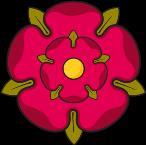

1 LANGUAGE CHOICE (pages 12-13)
Choose ONE Language from: French German Spanish
2 HUMANITY CHOICE (pages 14-19)
Choose ONE Humanities option from: Geography History Religious Studies
3 FREE CHOICES and Reserve Choices
Choose TWO more courses and TWO reserve courses (sometimes swapping a language or humanity makes it easier to timetable your other choices, so consider languages and humanity subjects as reserves even if you don’t want to take two languages or humanities)
It is strongly recommended that at least one of these choices is a practical subject (*).
Choose from: Art* Computing Drama* Engineering* Food Preparation & Nutrition French Geography German History Music* Design and Technology* Religious Studies Spanish
Indicate your choices in order of preference in the boxes below:
OPTION CHOICE 1 (most important to you)
OPTION CHOICE 4 (least important to you)
OPTION CHOICE 2
FIRST RESERVE OPTION CHOICE
OPTION CHOICE 3
SECOND RESERVE OPTION CHOICE:
Reserve Option Choices are important in case your combination of Options cannot be timetabled, if there is not enough interest to make a viable sized GCSE group or if a particular subject is oversubscribed. Rank your choices in the boxes below. If you are only prepared to study a particular language or humanity you must put it as your 1st or 2nd choice.


